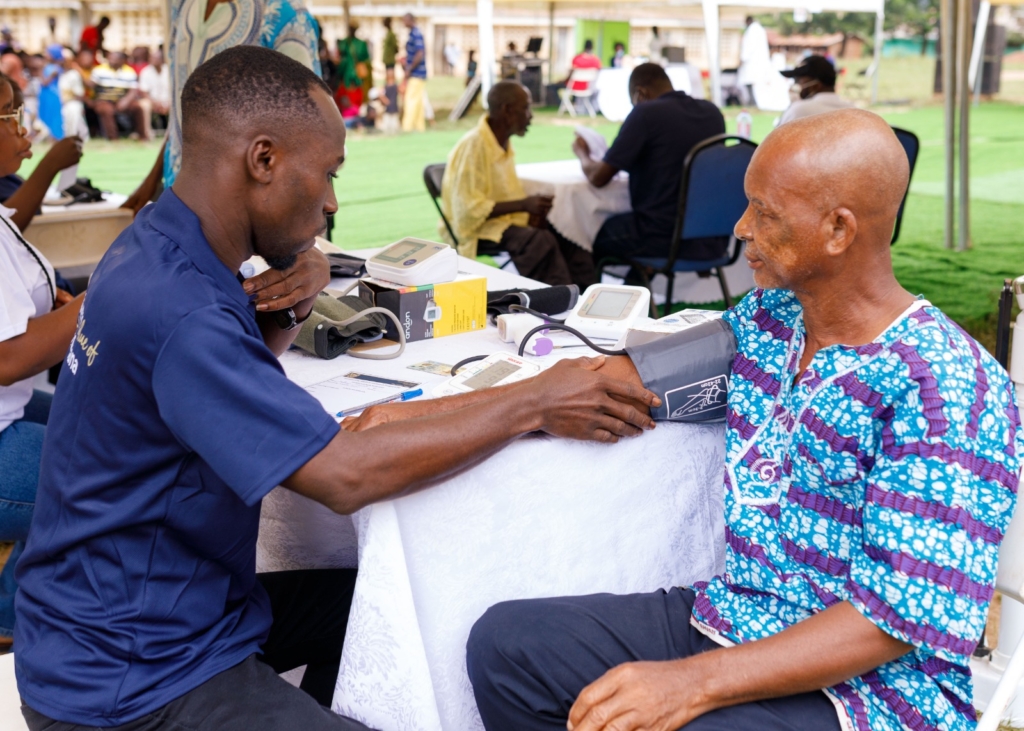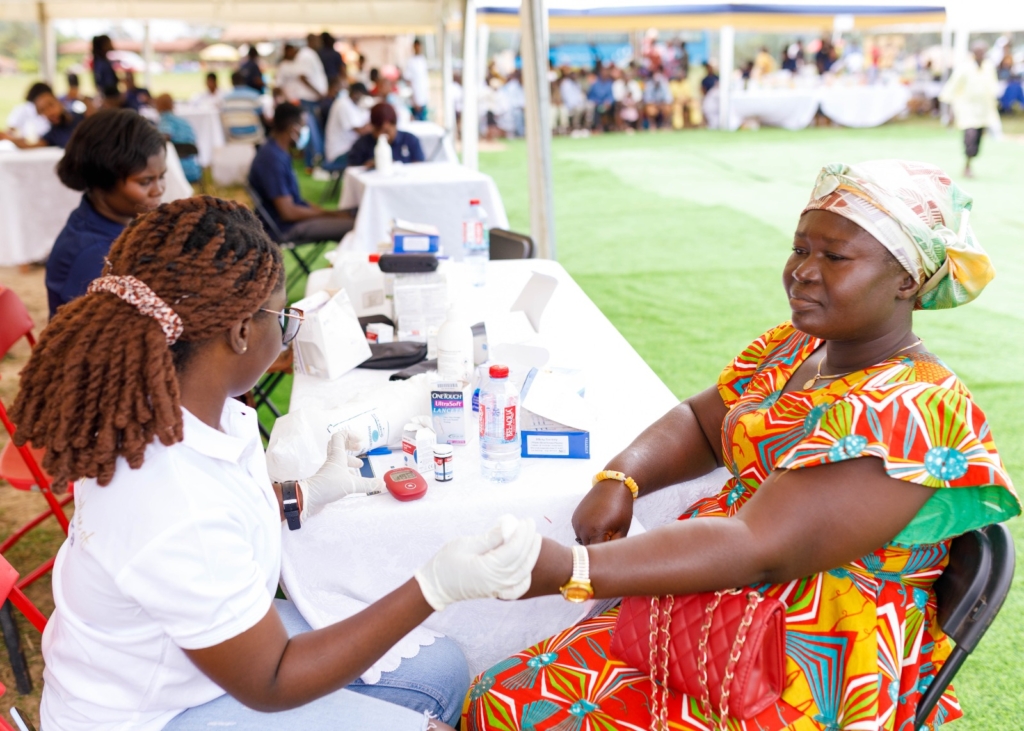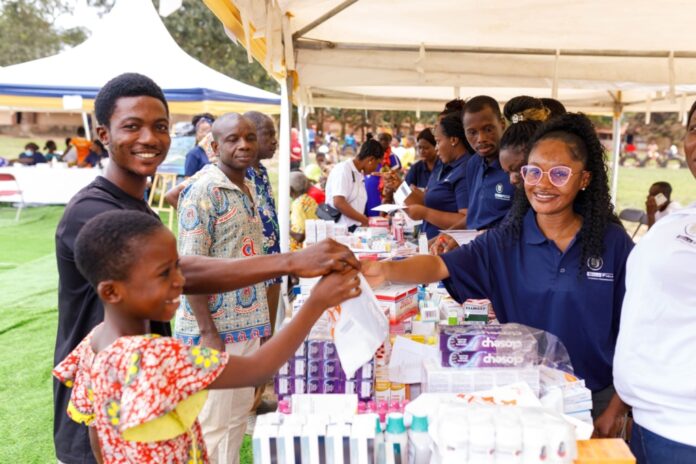A Senior Medical Officer at the Tarkwa Mine Hospital, Dr Antoinette Arthur Hasford, has issued a strong public health warning to pregnant women across Ghana, urging them to prioritise early antenatal screening for hepatitis B to prevent mother-to-child transmission of the disease.
Speaking during the Quarter Three Community Medical Outreach Programme (CMOP) organised by the Gold Fields Ghana Foundation at Koduakrom, Dr Hasford emphasised that early detection and vaccination can save lives.
“This month marks the celebration of World Hepatitis Day, and we used this platform to educate residents on how hepatitis is contracted, prevented, and treated,” she said. “We particularly encouraged pregnant women to visit antenatal clinics early because hepatitis B screening is part of the antenatal package. Early detection ensures the mother and baby are given the needed attention.”

Her plea is backed by data from the World Health Organisation’s 2023 Global Hepatitis Report, which reveals that 90% of babies born to hepatitis B-positive mothers are at risk of becoming chronically infected if no intervention is made. Chronic hepatitis B significantly increases the child’s risk of developing liver cirrhosis and liver cancer later in life.
The WHO further states that early testing, maternal care, and timely vaccination within 24 hours of birth can reduce the risk of transmission by more than 90%. Ghana, with a national hepatitis B prevalence estimated between 8% and 12%, is classified as a high-burden country, making public education and access to care crucial.
The Koduakrom outreach, according to the Project Coordinator, Health, Environment & Conservation, Gold Fields Ghana Foundation, Ayishetu Mohammed, forms part of Gold Fields’ broader Group Legacy Programme (GLP).
The outreach brought healthcare directly to residents of Koduakrom, Mile 10, and surrounding areas. A wide range of free medical services were provided, including blood pressure and blood sugar checks, eye and dental screenings, and ENT (ear, nose, and throat) services, among others.

Frank Condua, Accountant and Administrative Officer of the Foundation, explained that the outreach is designed to remove financial and geographical barriers to care and focus on preventive healthcare.
“We’re not waiting for people to fall sick before they seek help. We’re bringing health to their doorsteps. From breast exams to HIV education, even dental checks and ENT services, we are replicating what happens in big hospitals right here in Koduakrom,” Condua noted.
Participants also benefited from National Health Insurance Scheme (NHIS) registration and renewals, while Unilever Ghana supported the programme by providing free Close-Up toothpaste to promote oral hygiene.
A total of 732 residents were screened, and 708 were enrolled or renewed under NHIS, a figure the Foundation says demonstrates its long-term commitment to health accessibility.
To date, the Foundation has invested over US$4.9 million into health and wellness initiatives in its host communities, firmly cementing its role in advancing public health beyond mining operations.
DISCLAIMER: The Views, Comments, Opinions, Contributions and Statements made by Readers and Contributors on this platform do not necessarily represent the views or policy of Multimedia Group Limited.
DISCLAIMER: The Views, Comments, Opinions, Contributions and Statements made by Readers and Contributors on this platform do not necessarily represent the views or policy of Multimedia Group Limited.


